Hamas now, Entebbe then: How Israel has had to deal with hostage crises
Hamas now, Entebbe then: How Israel has had to deal with hostage crises
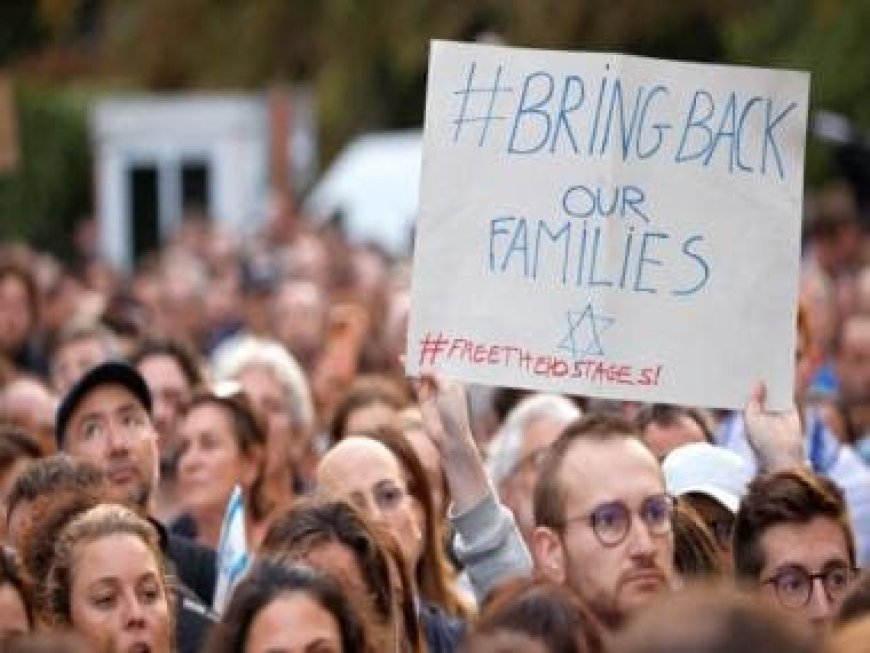
“Every targeting of our people without warning will be met with the execution of one of the civilian hostages,” read a statement from the Al-Qassam Brigades, the armed wing of Hamas, on Monday night. The declaration came after Israel on Day 3 of its war announced a total siege on the Gaza Strip.
On Saturday (7 October), in one of the deadliest and daring attacks carried out by Hamas, under a rocket fire, the Palestinian militant group breached Israeli walls and entered inside the southern part of the country, unleashing a rain of bullets and taking over 150 people, including children, women, as hostages. These 150 people most likely also include foreign nationals from the United States, Germany and other countries.
Israel’s ambassador to the United Nations Gilad Erdan told CNN on Monday that Hamas taking captives has complicated their response, but stated that the government’s priority is destroying Hamas to restore security for all Israeli citizens. “Of course, we want to see all of our boys, girls, grandmothers, everyone who was abducted we want to see them back home, but right now, our focus is looking at our national strategy is to obliterate Hamas terrorist capabilities,” he said.
As of Day 4 of the war, little evidence has emerged as to the condition of the hostages, some of whom have been identified by their families as they desperately seek answers.
The capture of the Israeli civilians and soldiers has stirred Israeli emotions; it is, in fact, a deeply sensitive issue for Israel with the government paying a high price in the past for the return of its citizens or of the remains of soldiers in lopsided prisoner exchange deals.
Gilad Shalit taken hostage – 2006
Before 2023, the most prominent hostage crisis Israel saw was the abduction of its soldier – Gilad Shalit – in June 2006.
Palestinian militants in a brazen raid had crossed into Israel from the Gaza Strip through a tunnel near Kerem Shalom, and attacked an Israel Defense Forces (IDF) post. In the ensuing battle, two Israeli soldiers were killed and another two, apart from Shalit, were wounded. Two of the attacking Palestinian militants were also killed.
After injuring Shalit, the Palestinian militants took him captive via a tunnel into Gaza. He was held captive for five years and four months until he was released on 18 October 2011 in exchange for 1,027 Palestinian prisoners.
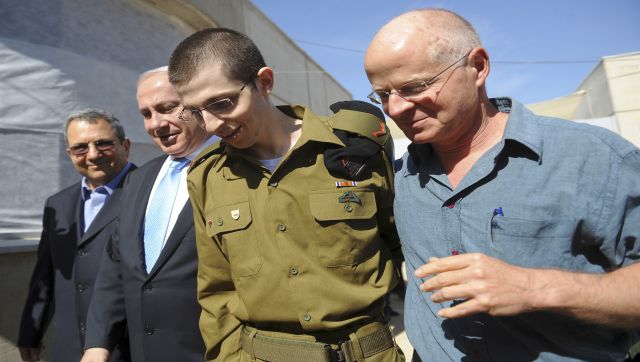
While Shalit himself didn’t provide many details of his years in detention, his father, Noam told The Guardian, “He suffered a lot from these many years of captivity. He was in total isolation, apart from his guards, for the whole time. He was kept in the dark except for a few times when he was transferred from place to place, when he was blindfolded. Sunlight was a shock for him.”
After Shalit was taken hostage, Israel tried to secure his release through all means possible. Initially, the country launched a military bombardment of the tiny Gaza Strip. This was followed by many attempts to broker a deal to secure his release. However, the Palestinian militants set clear parameters: he would be freed only in exchange for a large number of prisoners.
Eventually, Israeli prime minister Benjamin Netanyahu took “a brave decision, against his beliefs, against his political DNA” to agree a prisoner-swap that was hailed by most of the Israeli public.
Operation Entebbe – 1976
On 4 July 1976, Israel took, perhaps, the biggest risk when it special forces to Uganda to save Jewish people who were aboard a hijacked Air France flight before being taken hostage by terrorists and held in Entebbe, Uganda.
The operation came after Palestinian militants hijacked an Air France plane departing from Tel Aviv and carrying 246 passengers, mostly Israelis, and 12 crew members on 27 June 1976. Just after the takeoff, the flight was hijacked by two Palestinians from the Popular Front for the Liberation of Palestine – External Operations (PFLP-EO), and by two Germans from the German Revolutionary Cells. The hijackers then diverted the flight to Benghazi, Libya, before landing in Uganda at the Entebbe International Airport.
The hijackers then moved the hostages to a disused airport building and separated all Israelis and several non-Israeli Jews from the larger group. Over the following two days, 148 non-Israeli hostages were released, leaving behind 94 hostages, mainly Israeli, along with the 12-member Air France crew.
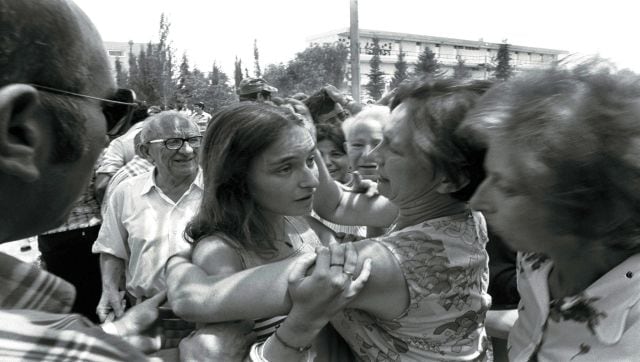
After much planning, the IDF assembled a team under the leadership of Yonatan Netanyahu, the brother of current PM Benjamin Netanyahu. On board four Hercules planes, the soldiers flew to Entebbe and in the next 90 minutes killed all the hostage takers. Unfortunately, in the attack Yonatan Netanyahu was killed.
The surviving hostages were then flown to Israel with a stopover in Nairobi, Kenya, where some of the injured were treated by Israeli doctors and at least two transferred to hospital there. Following the operation, then Israeli prime minister Yitzhak Rabin said: “This operation will certainly be inscribed in the annals of military history, in legend and in national tradition.”
Ma’alot Massacre – 1974
In May 1974, over 100 Israeli high school students went on what was supposed to be a fun field trip in honour of Israel’s 26th birthday, exploring northern Israel and sleeping under the stars.
But the three Palestinian terrorists who sneaked in from Lebanon had other plans… This is the story of the Ma’alot massacre.
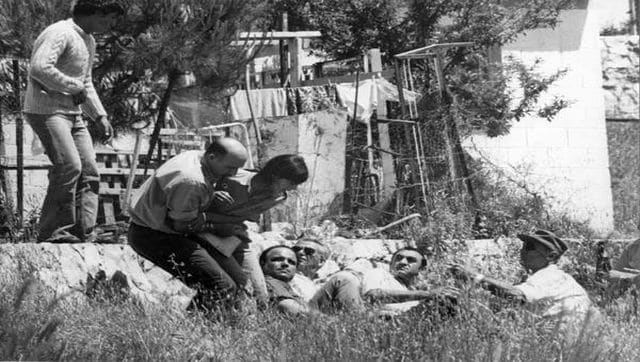
It all began on 13 May when three terrorists stormed the Netiv Meir Elementary School, situated in Ma’a lot of the Galilee region of Israel. Armed with weapons, they took the 102 students hostage and demanded for the release of 23 terrorists being held as prisoners.
When the deal broke down, and on 15 May, the troops stormed the school to end the hostage situation. In the ensuing gunfight, 16 teens died and another seven were injured. The dead students were later buried in their hometown, Safed.
Munich Massacre – 1972
When you think of Olympics, you normally think of sports and sporting achievements. However, the Munich Olympic Games of 1972 is sadly remembered for the Munich massacre when Arab terrorists took the Israeli team captive.
It was the fateful day of 5 September 1972, when eight members of the Black September group – a Palestinian terrorist organisation – scaled the perimeter fence of the Olympic Village and broke into the apartments housing the Israeli athletes and took 11 members of the team hostage. During the initial breach of the apartments, two athletes were killed and nine were taken captive.
The terrorists had demands: The release of over 200 Palestinian prisoners held in Israeli jails along with safe passage out of West Germany. When negotiations and talks proved unsuccessful, the German police attempted a rescue mission. However, it went awfully awry, leading to the death of all the hostages.
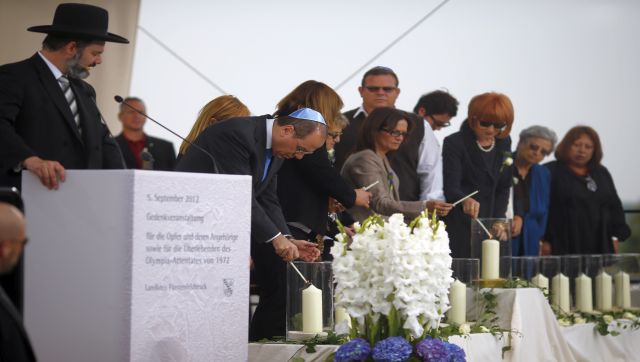
In the aftermath of the deaths, Israel’s then prime minister Golda Meir, responded by authorising Operation Wrath of God, a targeted assassination campaign against Black September operatives and organisers. The campaign was spearheaded by then Mossad chief Zvi Zamir and lasted for several years.
It will be interesting to see what Israel’s response will be to this crisis, but through past instances it can be said that the country will go to lengths to ensure the return of their people.
With inputs from agencies
What's Your Reaction?



























































